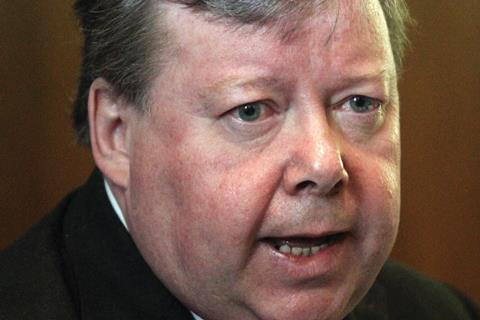Why did the High Court of England and Wales and the Inner House of the Court of Session disagree last Wednesday on whether the prime minister had acted lawfully in advising the Queen to prorogue parliament earlier in the week?

The first thing to understand is that the High Court did not decide whether or not Boris Johnson’s advice was lawful. Lord Pannick QC, acting once again for the businesswoman Gina Miller, had tried to persuade the lord chief justice of England and Wales, the master of the rolls and the president of the Queen’s Bench division that the PM’s advice on suspending parliament was an unlawful abuse of power. It undermined parliamentary sovereignty, Pannick claimed, by impeding MPs’ ability to enact legislation dealing with Brexit.
For the government, Sir James Eadie QC argued that Miller’s claim was simply non-justiciable. ‘The exercise of this prerogative power is intrinsically one of high policy and politics,’ said Eadie, ‘not law’.
And the High Court agreed. Both as a matter of logic and as a matter of law, said Lord Burnett of Maldon, Sir Terence Etherton and Dame Victoria Sharp, justiciability had to be considered before the facts. The PM’s decision to suspend parliament for five weeks and his advice to the Queen ‘were inherently political in nature’, said the judges, and there were ‘no legal standards against which to judge their legitimacy’. Arguments that five weeks was too long ‘face the insuperable difficulty that it is impossible for the court to make a legal assessment of whether the duration of the prorogation was excessive by reference to any measure’.
The High Court also noted that parliament could move quickly if it wanted to. This month, it passed the European Union (Withdrawal) (No 2) Act 2019 in little more than three days. That requires the PM to seek a three-month extension to the Brexit deadline by 19 October unless, before then, MPs have approved a deal or have agreed to leave the EU without a deal. As the High Court observed, enacting that legislation undermined the underlying premise of Miller’s claim, which was that ‘prorogation would deny parliament the opportunity to do precisely what it has just done’.

Unlike their counterparts in London, the Edinburgh judges had no problem in examining the facts. From the summary made available last week, it was not possible to tell whether the Scottish judges saw material that Downing Street had withheld from judges in London. But the evidence was enough to persuade Lord Brodie that there were two main reasons for Johnson’s advice to prorogue: first, to make it harder for parliament to hold the government to account and, second, to allow ministers to pursue a no-deal Brexit policy without further parliamentary interference. Brodie, Lord Carloway (pictured), and Lord Drummond Young concluded that the PM’s advice was justiciable, that it was motivated by the improper purpose of stymieing parliament and that the advice to prorogue parliament was therefore unlawful.
The government made no application to suspend the Scottish ruling pending its appeal to the Supreme Court this week. Mishcon de Reya, Miller’s solicitors, emailed the government legal department demanding that parliament should therefore be recalled immediately. Opposition MPs turned up at the Commons chamber to make the point that they had been prevented from representing their constituents.
It makes much more sense for everyone to wait for a definitive ruling from the UK Supreme Court. Nine justices will sit tomorrow to hear appeals by both Johnson and Miller. There will be plenty of time for MPs to discuss Brexit if the justices uphold the Court of Session ruling within the next few days.
But should they? Drummond Young said the Scottish courts had jurisdiction to decide whether any power, under the prerogative or otherwise, has been legally exercised. Pannick, while accepting that there were areas in which the courts must proceed with caution, failed to persuade the High Court to go that far.
If the PM was less than candid in what he told the Queen and the public, there are two ways in which he can be held to account. One is political: it involves MPs and ultimately the voters. The other is judicial: it involves the courts and ultimately the state.
As the High Court put it last week, the constitutional arrangements of the United Kingdom have evolved to achieve a balance between the legislature, the executive and the judiciary. ‘This is territory into which the courts should be slow indeed to intrude by recognising an expanded concept of parliamentary sovereignty,’ the judges said.
This was not a cop-out: it was a shrewd way of preserving judicial independence. Unless the justices decide that prorogation is nothing to do with them, we can expect newspaper headlines, yet again, condemning them as ‘enemies of the people’.
Joshua Rozenberg is the keynote speaker at the Small Firms Division annual conferences. For more information and to book your place click here.































13 Readers' comments